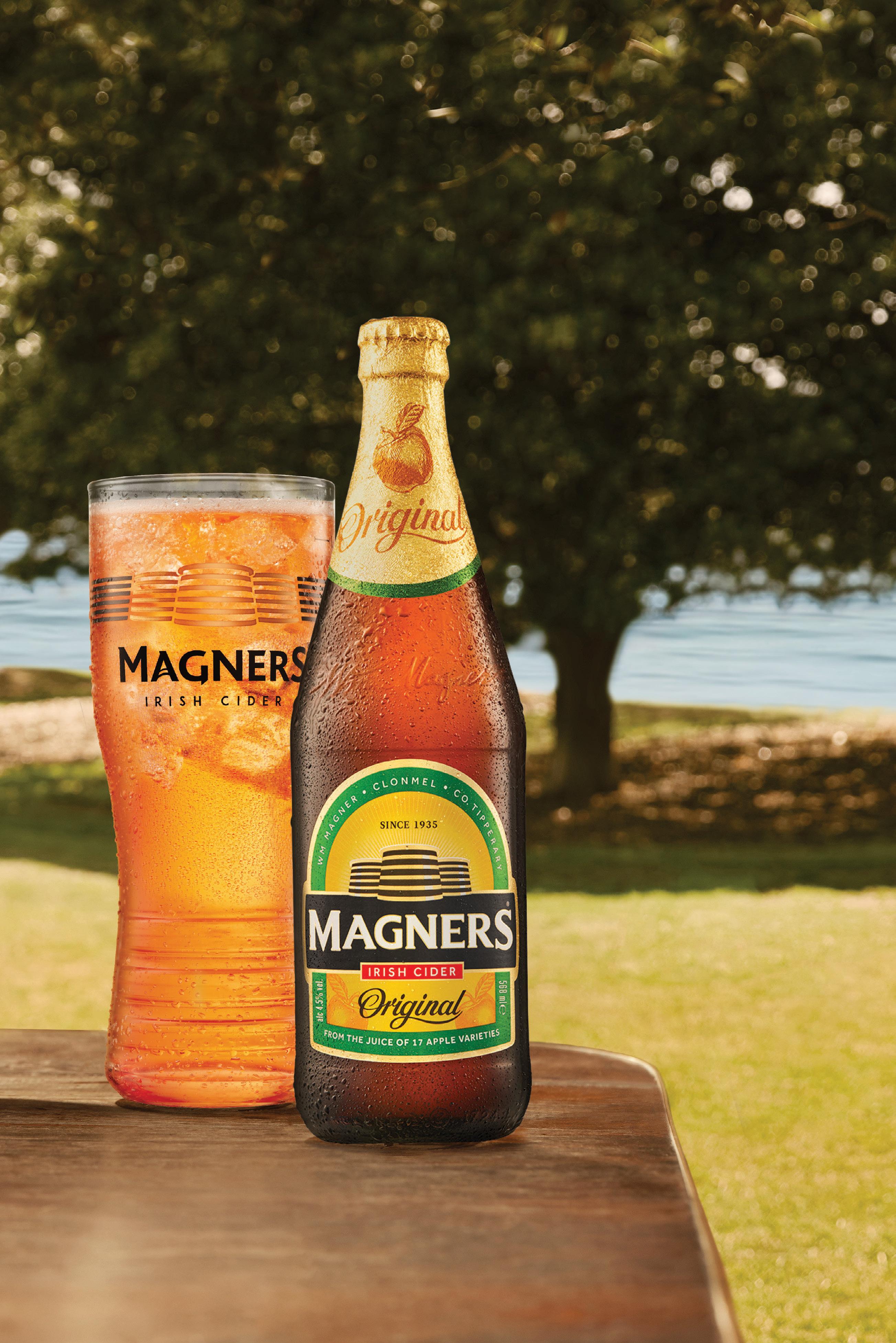










Rugby League
Aussie Rules
American Football

Netball
Cricket
Golf Boxing MMA
Baseball
Basketball
Ice Hockey
Surfing
Motorsport
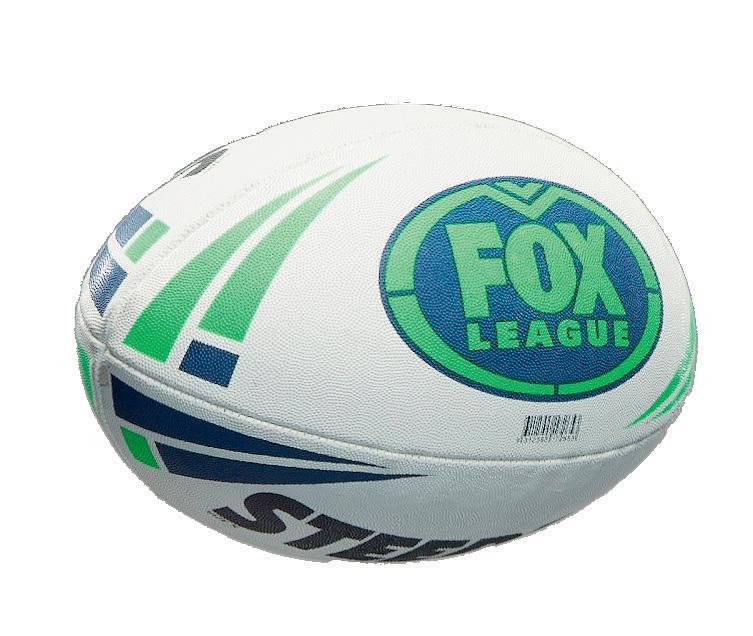
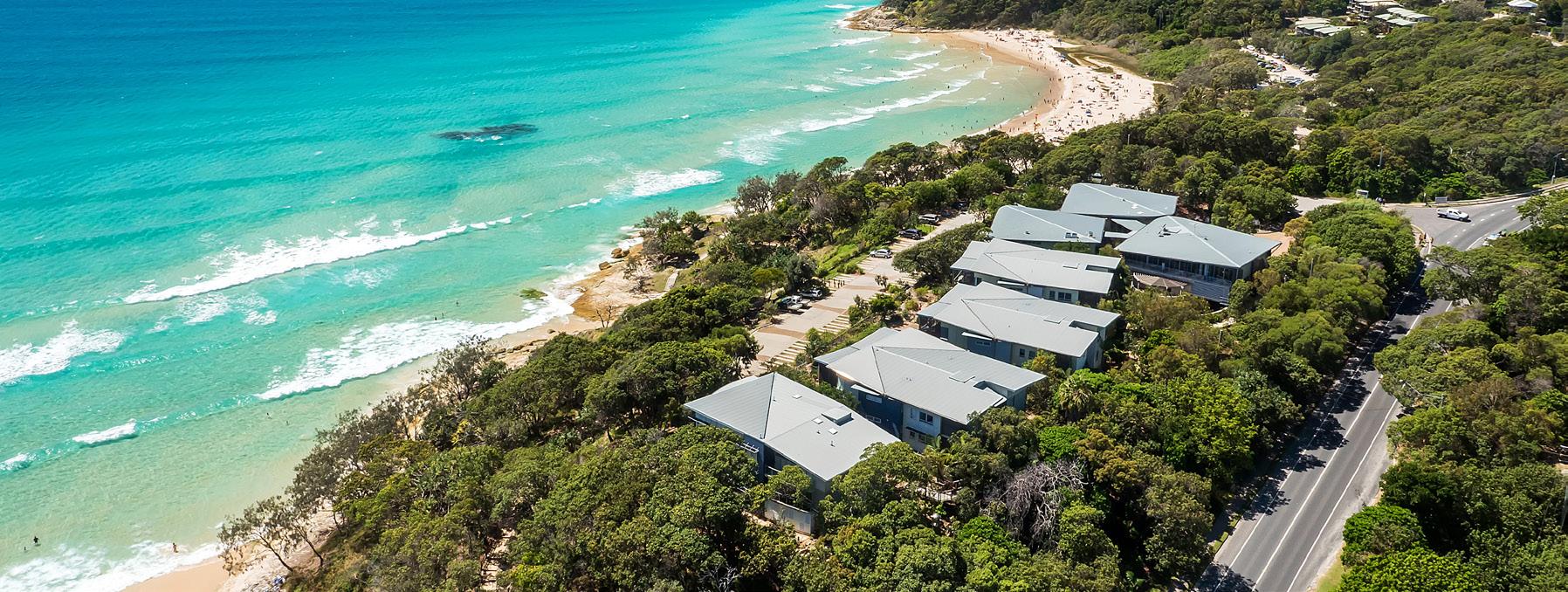
10 Cover Story: Magners Irish Cider is tapping into new growth in the category with in-venue activations.
12 International Womens Day: Women from the industry discuss this year’s theme #InspireInclusion.
14 Draught Beverages: Exploring the timeless appeal of a drink on tap – with beer ceding more tap space than ever.
18 Gen Z: With the youngest generation of pub patrons drinking less, pubs will have to shift their strategy to appeal to the demographic.
20 Gaming: The latest updates on the march towards cashless gaming.
24 Accommodation: Firmly in the budget accommodation category, pub rooms are appealing to more travellers.
6 News: What’s happening in pubs across Australia.
28 Design & Build: Lewis Land Group’s The Belvedere has expanded its capacity, including more space to enjoy sunset views over the water.
34 Tales from the Top: Hurley Hotel Group’s Arkaba Hotel puts on Quiet Dinners for people with autism.

WHEN YOU think of pub culture, I’m willing to bet that beer is one of the first things you think of. Pubs and beer go hand in hand, but its absolute domination of pub taps is lessening ever so slightly, with alternate draught beverages like ginger beer, seltzers and mixed category drinks becoming increasingly popular on taps. Cider is even making a comeback, with the category growing in Australia for the first time in several years (see our cover story on Magners Irish Cider on p 10 for more details). This shift is driven by younger patrons who are looking for lighter, healthier alternatives.
It’s not the only shift in pub culture that’s being led by younger patrons, with Gen Z not only drinking less, but changing their socialising and spending habits – more on this
from p 18. While the foundations of pub culture aren’t going anywhere – no is suggesting that beer is going to be knocked off the perch as the most popular beverage in pubs – operators would do well to gauge the demands and behaviours of Gen Z, and how they can keep this cohort coming back for more.
Pubs remain a huge part of Australia’s cultural identity, and have been for more than 150 years. Pubs have evolved massively over that time, and it’s the very fact that operators are willing to evolve their offers that have kept them culturally relevant for so long.
Cheers!
Vanessa Cavasinni, Editor E: vcavasinni@intermedia.com.auRESPONSIBLE
PUBLISHED BY: Food and Beverage Media Pty Ltd
41 Bridge Road GLEBE NSW Australia 2037
Tel: 02 9660 2113
Fax: 02 9660 4419
PUBLISHER:
Paul Wootton
EDITOR:
Vanessa Cavasinni vcavasinni@intermedia.com.au
NATIONAL SALES
MANAGER:
Jason Wild
Tel: 02 8586 6213 jwild@intermedia.com.au
GENERAL MANAGER SALES –LIQUOR & HOSPITALITY GROUP:
Shane T. Williams
GROUP ART DIRECTOR –LIQUOR AND HOSPITALITY:
Kea Thorburn kthorburn@intermedia.com.au
PRODUCTION MANAGER: Jacqui Cooper jacqui@intermedia.com.au
SUBSCRIPTION RATES 1yr
or
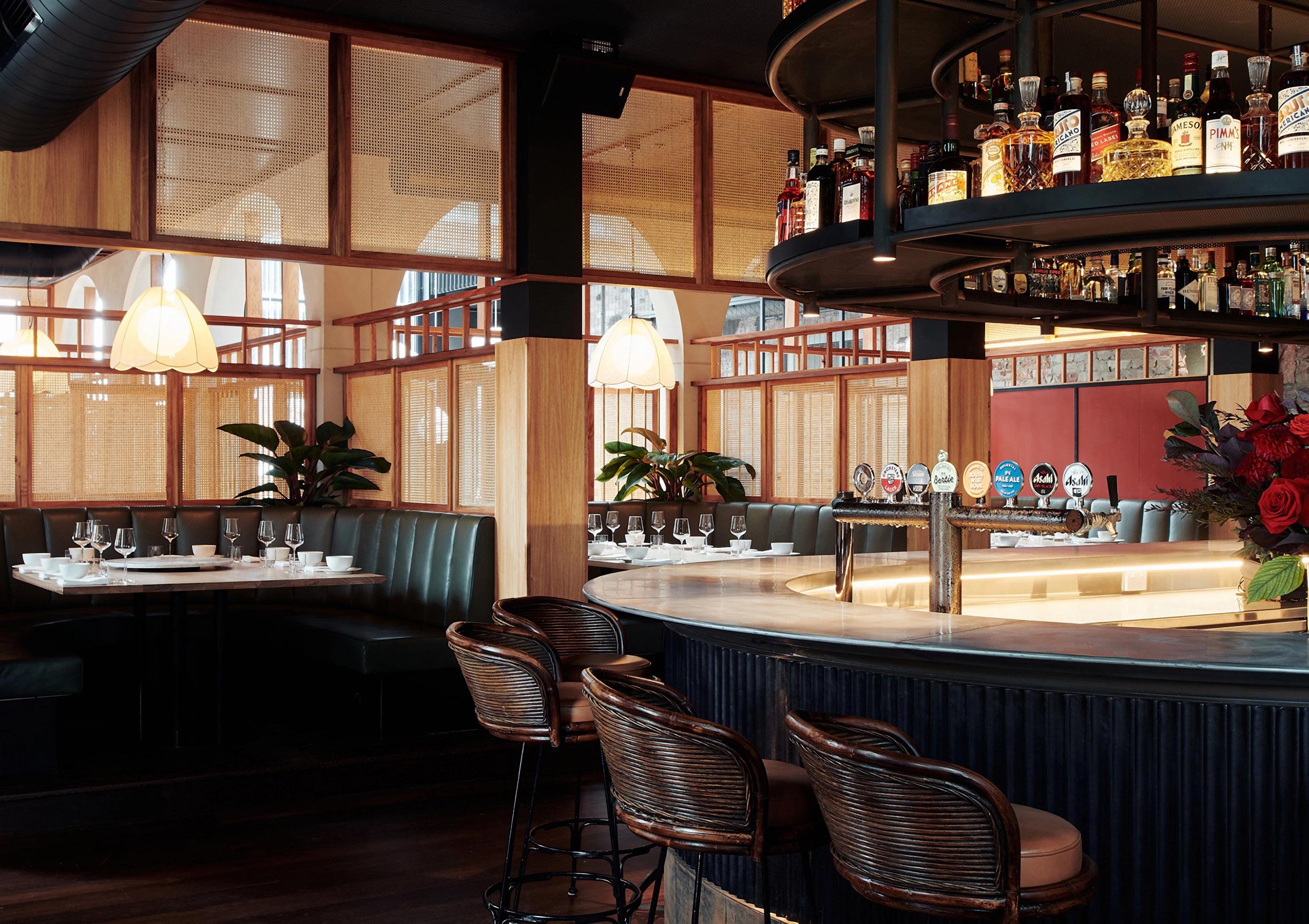
The Victorian-based hospitality group, formerly known as CLG, has been rebranded to Morris Hospitality.
Owned by parent company Morris Group, a rebrand of CLG has been in the works for a couple of years, having been a priority for CEO Tim Fitzgerald since joining the hospitality business. The rebrand to Morris Hospitality is not only a nod to the parent company, but also part of a new marketing philosophy.
“We’ve never been consumer facing as CLG - it’s never really been a brand that we’ve gone out to market with. And that wasn’t necessarily due to the name itself, it was more just the fact that it just didn’t fit with anything that we kind of resonated with as a group,” explained Morris Hospitality senior marketing manager Grace Dorman.
“And since we have become more of a Victorian-focused pub group, it made sense to then come up with a name that fit within the wider context of our company to go to market with, and
essentially unify all those properties.”
One of the aims of Morris Hospitality’s rebranding is to alert patrons of each of the pubs to the other venues in the portfolio.
“We’re really clear on who we are and what we do really well across a lot of venues. And that’s being people-focused and service focused, and obviously, product focused. That lends itself to wanting to help our target audiences across the various venues be able to connect our venues to each other,” stated Dorman.
“To understand that when you come to one of our venues, you can also get equally an equally great experience at another one of our venues and kind of helping people understand where they all sit in the context of one another.”
The new Morris Hospitality branding uses a similar logo to the Morris Group, but rather than a purple colour way, uses reds and oranges, to evoke the warmth and vibrancy of hospitality. A
new website and a lot of consumerfacing video content has been created to launch the Morris Hospitality brand into the market. Activation and an internal marketing campaign will also launch in April as well.
Morris Hospitality Group is made up of six venues within Victoria, including The Albert Park Hotel, Portsea Hotel and Full Moon. Outside of Victoria, it also owns and operates the Julatten Hotel in Far North Queensland, which it reopened in mid-2023.
Morris Hospitality is also partnering with Moda on an $85m waterfront Isle of Wight hotel development on Phillip Island, Victoria. The development includes a new seven-storey mixed-use hotel with 163 rooms, and a three-storey tourist/worker hostel, and four food and beverage outlets, including a reimagining of popular Isle of Wight pub, bistro, hotel dining and flagship restaurant, as well as a yoga studio, gym and wellness centre, and two function rooms.
After a year-long stint at Merivale, the ex-Bankstown Sports CEO has taken the top job at SA pub group Duxton Hospitality Services.
Mark Condi, who served as CEO of Bankstown Sports Group in Sydney’s south-west for more than a decade of his 30-year career at the club, has been appointed as CEO of Duxton Hospitality Services, a burgeoning pub group in South Australia with 25 venues. Condi resigned from his Bankstown Sports role in 2022, and took on the role of group GM –commercial for Merivale.
After a year out of the CEO role, he felt the need to take on that kind of challenge again – and particularly with a group like Duxton which is experiencing fast growth.
“The opportunity really excited me in that it’s a company that’s growing quickly, and I certainly wanted that challenge of returning to CEO again, after 12 months of being out of that role,” Condi told Australian Hotelier.
“I flourish on having a lot to do. And certainly, I felt in the interview process, that this is a company that’s really on that growth trajectory, and really needs people to be able to come in and basically run with it.”
Having spent 12 months at Merivale, Condi has a first-hand comparison of the pub and club landscapes.
“The Merivale experience was probably one of the most invigorating and probably my largest learning experience I have ever had in my career. Going from club to private enterprise, it’s just different. The whole structure is different.
“While Bankstown Sports was very large, and we had six or seven venues, many pub groups including Duxton and

Merivale are actually significantly bigger in terms of the multiple venues.
“Duxton’s got 25 so there are challenges there in that group think and implementing systems and procedures to ensure those venues are run as efficiently as possible. Just the multiplier effect of having those venues is an additional challenge in itself,” Condi continued.
“And there is a different market, there’s no doubt about that. So you know, with having a number of venues and, in some cases, venues reasonably close to each other, we naturally then need to look and consider how those venues position themselves in that area and that demographic, and how they differ from each other rather than being the same. So in a club, for example, we put in a lot of offerings in the one building, whereas in the pub world, it’s all in different venues.”
Having relocated to Adelaide for the new role, Condi is spending the first few

weeks of his tenure on the road, visiting all of the venues within the Duxton portfolio – many of which are in regional and rural areas of South Australia. He has been meeting with the venue and group teams, who he describes as “amazing and community-oriented”.
Supporting the continued growth of the group is his immediate focus for the role.
“[The focus] is putting systems in place to making sure that we’re getting the benefit of the venues and the group, but also then, implementing systems that as we grow, we can continue to grow with it, particularly attracting talent and making sure that we retain the best people, which is our biggest focus.”
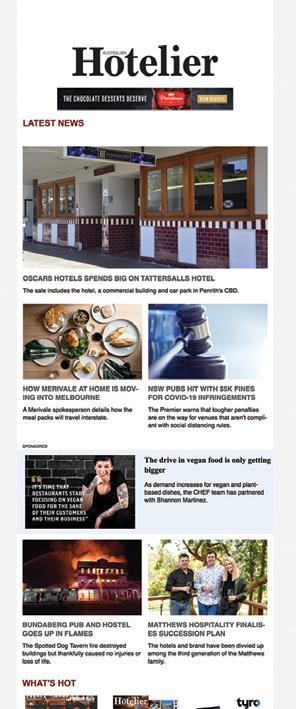
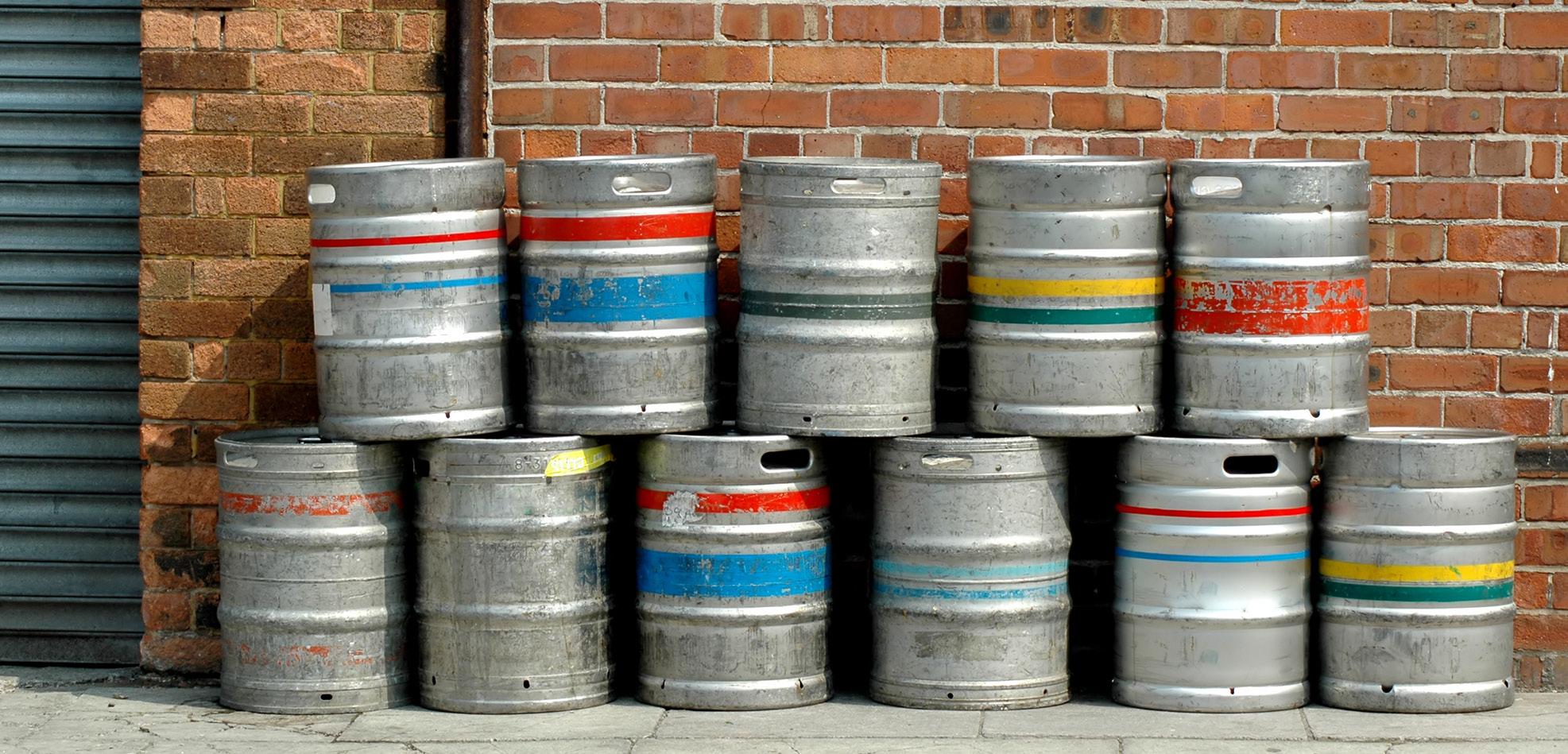
In a recent statement issued by Victoria Police, it was revealed that pubs, bars and breweries in the city of Melbourne are being targeted by a series of keg theft.
While empty kegs are being left outside venues for collection, set to be cleaned, refilled and delivered to another venue, police have been alerted to a number of thefts throughout inner city suburbs resulting in over 200 empty kegs going missing.
One of the businesses impacted by ongoing keg thefts is Hawkers Beer, which had 60 kegs stolen in two nights, but co-founder Mazen Hajjar, who spoke to Australian Hotelier just days before the announcement of Hawkers going into administration, says the total number of kegs stolen over the last two years is closer to 700.
“It’s completely selfish and damaging for small businesses,” he says. “Because of the nature of kegs, to make any sense, you need to buy a fleet, which is about $150 to $200 per keg, and you need to be looking at buying 800 kegs each time, which is a big cost to a business.
“We buy kegs and deliver our beer in kegs because environmentally it is the best thing to do. We’re not recycling, we’re reusing, that is the best outcome when delivering to bars, and it also helps to create hospitality jobs and put beer on taps.
“The scrap metal value of these
kegs is around $10 to $20 at best. So, people are taking a $200 keg from our business, scrapping it for $10 to $20, and affecting the livelihood of the 40 employees that work at Hawkers and our ability to deliver beer to our customers,” he added.
Nick Becker, general manager at keg rental company Konvoy Keys, agrees that while keg theft will always occur in the industry to some extent, the level currently taking place in Melbourne has peaked, and will soon have a knock-on effect for both customers and consumers.
“Across Australia, there is a combined estimate of 1.5 million to 1.8 million kegs owned by the likes of Asahi, Lion, Coopers Brewery, Good Drinks, DB Breweries and keg poolers like Konvoy, and our research suggests that one in 12 (approximately eight per cent) are lost or stolen every year.
“This represents a loss of $18 million to $25 million in assets and approximately $175 million of potential revenue generation from these kegs,” he says.
Hajjar says publicans are in a difficult position to address the matter due to limited storage space restricting alternative processes.
“This is the way we’ve done business for hundreds of years. The venues, at the end
of the day, put out their empty keys and the following day we collect them. Venues don’t have the space to store empty kegs, and if they do store them on the inside, we have no way of getting to them.
“There is no other practical way of doing it. The police need to take this seriously and crack down on it, because it is affecting hundreds of businesses and potentially thousands of employees. The game is so small compared to the damage being done. So far, our loss in kegs may be up to $100,000, on top of already tough conditions in the market.”
Another pub affected by theft was the Terminus Hotel, operated by Kickon Group on Queens Parade in Fitzroy. Although the number of kegs stolen from the pub was minimal, Kickon Group marketing director Tom Allan says the group has had discussions with its suppliers about secure storage for kegs while waiting for collection.
“It’s something we’re not thrilled about for both the hospitality industry and our supplier friends,” he says. “As there’s a cost associated with replacing each keg that will one day undoubtedly either put pressure on beer brewers or filter through to increases in prices.
“We only hope the authorities give it the attention it deserves, and give punishment to those responsible for the increase in theft.”
The Victorian Gambling and Casino Control Commission (VGCCC) has fined the owner of the Rye Hotel $80,000, required an undertaking that he sell the hotel and exit the gambling industry, after two integrity breaches.
The VGCCC confirmed to The Shout that the fine issued to Myndit Pty Ltd, the business which owns the hotel, and Peter Houghton whose family had owned the hotel since 1954, would undertake to sell the hotel, and exit the gambling industry. Over the last twelve months Endeavour Group has been trying to acquire the hotel, made easier in December when the ACCC announced that it would not oppose the acquisition. The acquisition has not yet been completed.
The two incidents occurred in February 2022 and in March 2023, with the VGCCC saying that in the first incident “senior staff at the Rye Hotel falsified records to cover up an erroneous cash payment of $2039 to a patron”.
The Commission added: “Venues are required to pay any winnings over $2,000 by cheque or EFT. The attempted cover up of the breach constitutes serious integrity failings and misconduct.”
In the second incident the venue issued a cheque to an ineligible person at the request of a winning patron who could not produce ID to collect their winnings.
The VGCCC said: “Venues are required to ensure they only process payments to the person playing the electronic gaming machine and ensure the appropriate identity checks are undertaken.”
VGCCC CEO Annette Kimmitt AM said this decision sends a clear message to the industry about compliance with integrity measures.
“Venue operators and owners need to understand the full extent of consequences for falsifying records and concealing misconduct,” Kimmitt said.
“We know that honest mistakes happen. However, venue operators that attempt to cover up breaches will be caught and face serious repercussions.”
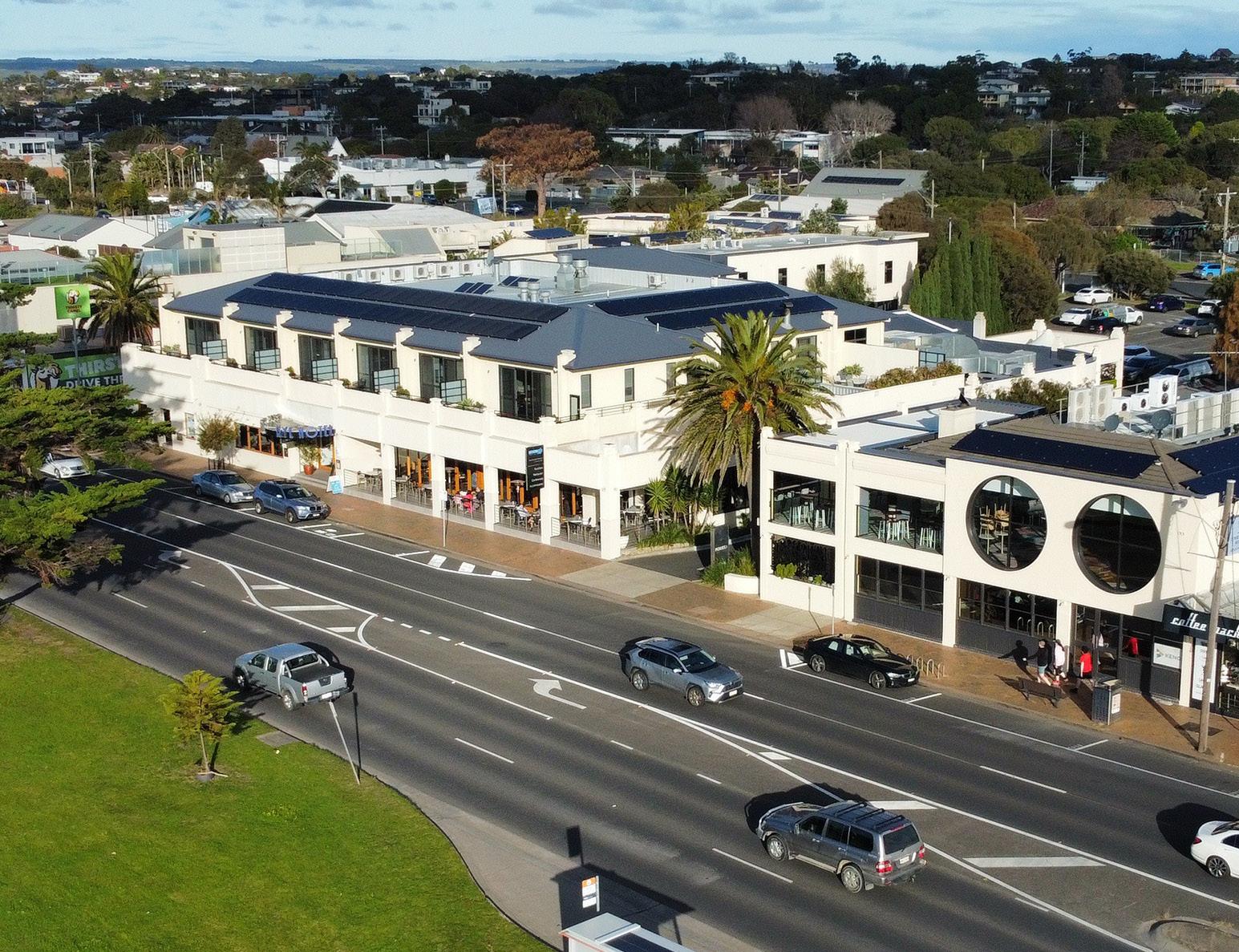
Merivale has settled the underpayments class action that was brought against it in 2019.
The class action was commenced against M.R.V.L. Investments Pty Ltd (Merivale) in the Federal Court of Australia on 24 December 2019 on behalf of Merivale employees that were employed at any time during the period from 25 December 2013 to 24 December 2019.
The claim alleged that throughout that period, a number of Merivale employees were paid less than the minimum amounts to which they were entitled under the Hospitality Industry (General) Award 2010. These employees included salaried workers who alleged that they were paid for 38 hours per week while being required to work at least 50hour weeks without any overtime payments, as well as casual and salaried workers who allege that the rates that they were paid were less than their minimum entitlements.
As part of the claim, Adero Law also contended that Merivale’s employee agreement, created in 2007 and amended in 2009, varied from the Hospitality Award, and was not a valid one.
In early 2020, a spokesperson for Merivale told TheShout: “Merivale categorically denies that any of its employees have been required to work unreasonable additional hours against their will.
“Full time Merivale employees have been paid annualised salaries with hours averaged over 52 weeks as permitted under the enterprise agreement that applied to Merivale employees from 2007 until 2019 and in accordance with the Hospitality Industry (General) Award 2010 since the agreement was terminated by consent.
However on 30 March 2021 the Merivale case suffered a blow when Justice Thawley made orders that the Merivale Agreement was beyond power. In June 2023, Merivale and Raymond Boulos – the original claimant –entered into mediation, and have since settled the class action.
The details of the settlement remain confidential between the two parties
After the rise of seltzers and RTD, the Cider category is back in growth with Magners Irish Cider helping venues make the most of new growth with in-venue activations.

A DECADE ago, cider was hugely popular in Australia, with a mix of imported and local craft brands fuelling big sales on-premise. But in the last five years or so, cider sales have declined, making way for lighter styles of craft beer, seltzers and RTDs.
While the category went quiet for a few years, total cider is up 1 per cent in value for MAT 31/12/23, returning back to growth for the first time in many years.
Magners Irish Cider is helping to propel that growth, growing +66 per cent in value and +48 per cent volume (litres) year-on-year. It is the fastest growing cider brand out of the top 15 cider brands in Australia.* In the draught format, Magners is growing at +130 per cent MAT to January 2024.**
Combining over 80 years of heritage and tradition, Magners is Ireland’s largest and most recognised cider brand that is still made in Clonmel, County Tipperary, using 17 varieties of apples taken from its own 150 acres of orchards. It is the Magners commitment to tradition and heritage that makes it the world’s number one imported cider brand.
Good Drinks Australia is investing in a comprehensive year-round calendar of marketing and activations to drive growth of Magners Irish Cider in the on-premise, actively recruiting new drinkers through in-venue activity , and extending the cider season in the lead-up to and post St Patricks Day.
The year kicked off with a ‘Win a trip to Ireland’ consumer competition, where patrons were encouraged to buy two pints of Magners Irish Cider for the chance to win. The competition ran from 15 January and will end 30 March.
This leads into the upcoming St Patricks Day weekend – Friday through to the big day, Sunday 17th March. As it falls on Sunday this year, St Patricks Day celebrations will be taking place over the whole weekend, representing a great opportunity to drive
incremental volume and trade within cider throughout the weekend.
The activations then continue with the ‘Shout a Mate a Magners’ consumer promotion. It’s all about harnessing loyal drinkers (who are often Irish expats) to shout their mate to try something new, and recruit new drinkers to the brand with a ‘buy one, get $15 cashback’ promotion. Each of these activities will be supported with paid social media.
“We’re really pleased with the growth Magners is delivering to our customers and how well its resonating with Aussie drinkers. This year’s focus has been all about extending the cider season beyond the traditional peak summer window,” stated Bec Lauchlan, marketing manager – Magners for Good Drinks Australia.
“By bringing media forward and following it with a series of compelling consumer promotions we’ve been able to see growth accelerate. We’re excited about what’s to come for Magners in the Aussie market and importantly having a great time out in trade on St Pats Day!”
At a time when younger consumers are looking for beer alternatives, it’s the perfect time to reintroduce Magners Irish Cider to pub patrons, particularly 25-45 year-olds who are maturing but still young at heart. They are comfortably curious, interested in premium and imported drinks and have outgrown sweeter ciders. Enjoying an equal split between male and female drinkers, Magners is the perfect choice for this cohort.
It’s the perfect time to stock the Magners Irish Cider range, which is available in multiple formats to suit your venue: draught kegs, pint bottles and cans for special events; and participate in the upcoming VPO driving consumer promotions.
For more information, get in touch with your local Good Drinks Australia representative.
* Source: Circana MarketEdge Australia Liquor Weighted, MAT To 31/12/23.
**Source: Good Drinks Australia data.


#InspireInclusion is the theme of International Womens Day 2024, held on 8 March. With the theme in mind, we asked female leaders in the industry about their experiences and how they are paying it forward.
 Melinda Tait General Manager
Murrumba Downs Tavern
Melinda Tait General Manager
Murrumba Downs Tavern
What an amazing industry to develop and work in. It’s so fluid, it’s got so many opportunities to, to offer everybody. We have an environment that’s completely flexible with working hours. I think there’s plenty of opportunities for women. Particularly over the last 10-15 years it’s just getting better and better with no barriers or pushback.
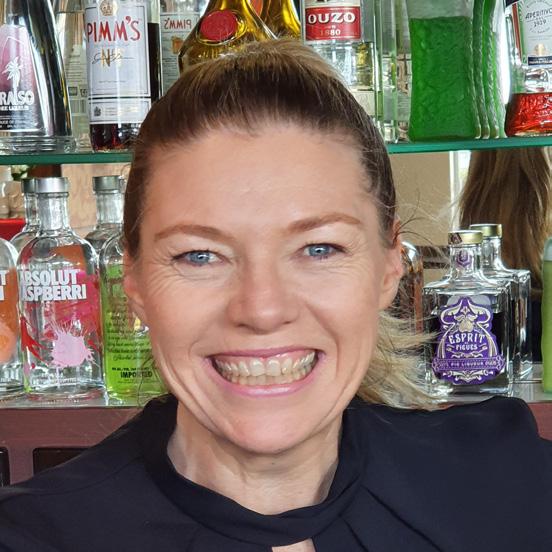
More opportunities have arrived now, from board positions to marketing positions to sales positions. There’s executives in every layer of this industry now. And you can start as a dishy and end up as a managing director.
I just wish there were more formal education opportunities. I wish industry and government would work together to make our industry much more valued. There wouldn’t be a kid that goes to do a uni degree that hasn’t had a go in hospitality, during their education. And it’s often regarded as a secondary option, when in reality you can create a really good long-term career in hospitality. There should be more recognition and opportunity for people to understand that this is a great industry to be a part of.
Inspiring inclusion is a really interesting topic. A lot of things that I attend these days, you know, as a board member, as a past owner of a hotel, there’s two females to 12 males. But what I would say is that these days, it’s not so intimidating. When you walk into those situations, you can tell everyone has lifted their game. And we have all sorts of inclusion, it’s not just the male/female dichotomy, but we have all types of inclusion.
Justine Laundy Director Laundy HotelsGender plays a role, I think, in many ways within the hotel industry, and my experience has been fairly consistent with that. Not always positive, and you sometimes need a thick skin. But I think it’s definitely improving. And, and it’s changing for the better without doubt. Like every industry, I think, it probably can’t afford not to change.
But when I think about my experience as opposed to, for example, my grandmother I used to hear a lot of her stories from serving behind the bar, you know, back in her day she was only allowed in the pub because she was working, otherwise, there were no women in the pub. You compare that to now and we can do any role. So we’ve definitely advanced and the quality is is improving. It’s just the underlying the unspoken chauvinistic attitudes sometimes that you have to deal with. At the moment, it’s getting better, it’s probably still got a way to go.
The other thing I think we could do as an industry is probably celebrate the females in the industry a little more. I think that’s begun recently, but maybe not enough. Oui, oui, But we have some fantastic women in our key roles. And some of our best and probably our longest serving employees are females. I’d like to shout out a few of our team here: Margaret Donnelly, Karen Muc and Trudy Ades.
Full Moon Hotel
I don’t believe I have experienced barriers in my career due to my gender, yet I share in the indignation alongside my friends and colleagues that are continuing to be challenged by lack of inclusion such as gender, having children or age.

I do know what it feels like as the only female to walk into a room or take a seat at the table, yet this has never held me back as I have chosen to align with progressive organisations and environments that invest in talent, irrespective of gender.
As a fourth-generation publican, there is a strong history of female publicans in our family, as can be seen historically across many family owned pubs in our industry, particularly during the war when women stepped up to do “men’s work” to keep the wheels turning. My great aunt Mayse Young, an outback publican in the Northern Territory through the 1930s and 40s shares her stories of running “the best drinking hole on the track” in her book No Place for a Woman, and it is one example of how generations of brave, resilient and smart women before us have cleared the path that we now walk. What a privilege that we now shine the light and lead the way for our daughters and other females to feel valued, relevant and empowered to become future leaders of tomorrow.
At the Full Moon Hotel we pride ourselves on creating a culture that promotes inclusive, gender balanced teams, and enabling the participation of women in leadership and decision-making roles of the business.
Women remain undeniably underrepresented in key decision-making roles across Australia and in my position as an employer, a mother, and a member of boards, I hope to play a small but mighty role in helping other females understand their full potential, supporting their growth, and show them that they don’t need to choose between working or being at home.
I do know what it feels like as the only female to walk into a room or take a seat at the table, yet this has never held me back as I have chosen to align with progressive organisations.
Lucinda Dowling-BlackDuxton Hospitality Services
I made a decision early on in my career that I would not allow gender to impact my progression or lack thereof. On reflection this personal decision was instrumental in how my career developed over time and as a result I feel that I have been treated fairly and equally, completely independent of my gender.

I love hospitality for women! It is unfortunately a sector which is under-indexed by women in general, particularly in leadership positions.
Hospitality to this extent is a place where flexibility works! Hospitality affords working hours that are not just 9-5. For both men and women the hospitality sector affords flexibility that enables other pursuits that ultimately enrich our community.
Across our leadership team at Duxton Hospiatlity Services we have 35 per cent female staff and in venue we have a plethora of managers, chefs, bar staff, retail staff who are from a diverse background, education, race, religion and sexual orientation. We pride ourselves on our diversity. In general I see the same in other operators. Hospitality provides experiences and it’s the diverse experiences that makes this industry unique, exciting and everevolving. Having a diverse community helps us deliver those unique experiences. It is one thing I particularly love about the sector.
In terms of inspiring inclusion, we have some real action! Last year we kicked off with a Ukrainian refugee program. We are soon to also launch an indigenous program. As our footprint is strong in regional areas, this makes good sense to us. However we are just scratching the surface. Watch this space as we will be diving deeper to bring inclusion to the fore and weave it into our DNA.

While
DRAUGHT BEVERAGES have long been associated with pubs, offering patrons an experience that, often, can only be enjoyed onpremise. For longer than most can remember, beer has dominated tap space in pubs, with extensive offerings found in most venues.
As RTDs and other alternative beverages have gained traction, their tap presence has also grown, and in CGA by NIQ’s Australia’s On-Premise: 2023 Year in Review report, almost half (44 per cent) of 18 to 34-year-olds reported purchasing draught cocktails.
Nick Clark, licensee at the Shortland Hotel in Newcastle, which recently took out Australia’s top industry award for quality draught beer, says there is an expectation from patrons that draught products are the freshest available, making them the favourable choice on-premise.
“Draught products are something that customers don’t have at home, so it is an important point of difference. We as hoteliers must continually work on giving the customer more reasons to come in and see us, than to stay at home.”
For as long as draught beverages have existed, beer has been commonplace, with the first version of draught beer believed to have been served as early as 1785 with the invention of the ‘beer engine’.
According to Cameron Buckland, sales director at Better Beer, there are few places that consumers enjoy a beer more than in a pub.
“There’s nothing better than sharing an ice-cold beer with your mates at your local. Your phones are in your pocket, there are fewer distractions, and you can simply enjoy some solid conversation over a cold one,” he says.
Moon Dog co-founder Josh Uljans is no stranger to draught products, with Moon Dog’s craft beers and alcoholic seltzer line Moon Dog Fizzer found on tap in pubs across the country, also operating two of its own brewpubs with extensive tap ranges.
Traditionally being one of the strongest draught performers on-premise, Uljan sees tap space as a crucial way to introduce customers to a wide variety of beers, from much-loved classics to craft specialties and seasonally rotating products.
“We want to make sure that when people come into our venues, they can have the broadest and most up-to-date range of beers, and give them the full experience of our brand.”
On-premise, Moon Dog Lager and Old Mate Pale Ale are consistently the brand’s two best sellers, which Uljan believes is representative of a broader trend in the craft beer space.
“There are some changes taking place in what consumers are looking for onpremise. To some extent, we’re moving away from more adventurous products and back into the more tried and true products like lager and pale ale, and alongside that we’ve got the upsurgence in RTDs.
“But there is still a really strong tail of beer styles that are important to have in wide availability to make sure that people can try something different and have an interesting experience,” he says.
Although lagers and pale ales tend to stand firm in the mind of the consumer year-round, Clark says that the transition into autumn allows for the introduction of darker, and perhaps slightly heavier, beer styles, such as stouts, porters and brown ales.
“As the days get shorter and cooler, the trend is to move away from the light and refreshing to the full and comforting. Brewers take this opportunity to focus on different products in their portfolio and through this influence the trends. As hoteliers we follow with our offering.”
Adding to its portfolio, Moon Dog opens the doors to its third venue, Moon Dog Wild West, this month, and with upwards of 100 taps throughout the venue, Uljans says draught diversity is the key to keeping consumers engaged.
“The variety of different types of drinks that people are looking for on-premise is evolving, and we’ve seen some pretty major changes over the last 20 years with the upsurgence in craft beer, and how that has led on-premise operators to look for more variety in tap offerings and beeradjacent products.”

At the Jacksons on George public bar in Sydney, venue manager Paul Burnicle says beer and cider tap lines are making way for alternatives, which are proving most popular with the venue’s male patrons in the 18-35 age bracket.
“There’s been a decline in the cider sector over the years, and the range of beers being consumed within each category is decreasing, which can be attributed to the increase in cocktails sales across pubs.
“Alcoholic ginger beer showed some volume promise but fizzled out after a few months. There are several other variations of alcoholic draught, such as lemon-lime bitters and pub squash…and since the introduction of Hard Rated, many other breweries have upped the ante on production of non-beer draught products, giving consumers a broader range of quality products to buy on tap.”
Speaking of innovation, Uljans says that Moon Dog Fizzer has been performing exceptionally well as a draught product on-premise, particularly in Victoria


where the seltzer has developed a strong customer base.
“There is an amazing world developing of what RTDs can be. It was only three years ago that we saw seltzers enter the market, and that has changed the drinking landscape, followed by premix cocktails and functional-style products. We’re in an ever-evolving world where we’re only limited by the imagination of what people can come up with.”
With Hard Rated dominating draught trade at Jacksons on George, Burnicle explains why alcoholic versions of classic pub beverages are gaining traction.
“Hard Rated’s success stems from a nostalgia factor coupled with its drinkability. Cider drinkers who moved to the cocktail category are now being lured back to the draught category by Hard Rated. Hard Rated also appeals to those who are not beer drinkers and want a cheaper alternative to a cocktail or spirit mixer.”
With people being more willing to try new products on-premise, Uljans says the draught format gives publicans the opportunity to deliver new products in a way that’s appropriate to the setting, and unique to the on-premise space.
“If you’re in a pub, it’s great to be drinking out of a schooner or a pot. A lot of our attitude is embedded in rituals that have been established over a long period
Having won the 2023 AHA National Award for Draught Beer Quality, satisfying a comprehensive judging criteria that considers the systems managing a beer from the time it arrives at a pub to the moment it reaches the customer’s glass, Clark explains what the win means to the Shortland Hotel.
“Best Draught Quality is exactly as it sounds. It’s about delivering the product to the customer, to the expectations of the brewer. Clean lines, clean glasses, two pulls, subzero temp in the glass, coming from a cellar which is clean, tidy and maintained. Service with a smile.
“We have been putting ourselves up for this award for the last five or six years, and trying to learn from each experience so we can improve the next year. The competition from hotels across the state is so strong that winning or losing may come down to the smallest of margins. For us, winning the award comes on the back of experience, continuous improvement, and a few disappointments.”
of time. There is a perceived freshness to the draught offering, along with speed of service and opportunity to be able to buy in rounds in a consistent format.
“There is also, without a doubt, a price point element to it. Without the cost of packaging and the tax components that exist for packaged versus draught products, this plays out in having a material impact on what the end consumer pays, so having some degree of price parity across different formats is an important factor,” he says.
Speaking about the way that the Shortland Hotel introduces new products to its patrons, Clark says the only way to approach the growing category is to embrace the change.
“There’s not much prodding needed to get customers onto the non-beer draught alternative, it’s more a matter of keeping up with the trends. Many of our customers are happy to experiment and explore the range, it’s just up to us to keep the variety coming.”
Having launched its flagship Better Beer Zero Carb as its first draught product, Better Beer has since extended its tap range to include Better Beer Ginger Beer, Better Beer Middy and Better Beer Arvo Ale, and Buckland says publicans should look to partner with producers who will support them with the roll-out of new products through introductory deals and digital marketing.
“We have the benefit of leveraging our significant social media reach to inform pub patrons and Better Beer fans where they can locate their nearest venue pouring Better Beer.
“Our service doesn’t stop once a new tap is secured,” he added. “We are big believers in bringing the fun to the onpremise and you will regularly see the team offering a bar shout to drive trial, or running a promotion in-venue to win some Better Beer merchandise.”
Publicans may fear that there is a lot to learn before moving into the beer-adjacent space, but Clark says that considerations of quality and technicalities needn’t differ when it comes to alternatives.
“From a cleaning and maintenance standpoint they are treated with equal attention. We are careful to allocate our non-beer products to certain taps and not switch them around with the beers, to avoid contamination with flavours and residual sugars that are difficult to remove.”
To ensure efficient operation for staff, Uljans says cellar layout and design is the most important consideration.
“It’s about having a really robust design upfront for draught beverages, and making sure the design has been well thought through to ensure that we have an efficient back-of-house operation that allows us to get our products where they need to go with minimal disruption.”



You can lead Gen Z to a pub, but you can’t make them
With Gen Z drinking less than their millennial and Gen X predecessors, pubs are having to rethink how they capture the spend of their youngest patrons.
By Howard Parry-Husbands, founder and CEO of Pollinate.
PUBS HAVE been a quintessential part of Australian culture for longer than most of us can remember. For decades they have acted not just as a neighbourhood social hub, but a key part of Australia’s cultural identity. However, the Aussie pub could become a victim of changing taste, as our new research suggests pubs – and the hospitality industry in general – are under threat from Gen Z.
Pollinate research* found that more than seven in 10 Gen Z’ers say that they don’t need to drink to have a good time with friends. It’s a different perspective to the classic “drinking for drinking’s sake” mentality. Gen Z drink less alcohol
than other generations, with only 60 per cent drinking weekly compared to millennials (79 per cent). In fact, Gen Z no longer view alcohol as a primary part of socialising and opt for alternatives that don’t involve excessive drinking. While it may be surprising, it’s completely understandable that Gen Z are rewriting the rule book when it comes to how they spend their time and money. Born between 1997 and 2012, they have lived through some wild times, from the GFC and natural disasters to wars and the COVID-19 pandemic. As they enter adulthood, Gen Z face a challenging economic landscape characterised by slow wage growth, inflation,
sky-high property prices, increasing HECS debt payments and an unpredictable global economy.
This uncertainty is having a profound impact on Gen Z’s behaviour and priorities, creating a generation marked by caution and consideration, in stark contrast to their more spontaneous predecessors, the millennials. This shift is evident in their focus on financial planning, with 78 per cent of Gen Z expressing a keen interest in saving money for their future.
For publicans and hospitality operators, keeping up with the changing trends set by the financially cautious and socially responsible Gen Z is critical for business survival and success.
Unlike previous generations, Gen Z doesn’t go out, drink and spend money just because it’s the norm. Most require a reason, an event or an elevated experience to gather. It’s very conscious thinking, with 67 per cent striving to avoid wasting their weekends with hangovers.
However, it’s not all doom and gloom for pubs.
Gen Z places a lot of store in shared experiences with friends and is willing to spend on these experiences. That means they are more likely to explore new pubs and bars that offer a unique concept or vibe, and are drawn to venues and immersive, aesthetically driven environments with special programming like DJs, themed nights,
trivia and any kind of organised fun. They want unique, engaging experiences, creating both challenges and opportunities for the hospitality and entertainment industry.
If pub and bar owners can provide these kind of engaging experiences, Gen Z will come, and they will drink. Their drinking habits reflect intention and moderation, favouring quality over quantity. It’s more about having a few nice cocktails with friends rather than a dozen beers. For them, drinking is not an occasion in itself.
Gen Z are breaking the mould set by generations that have come before. They are adapting to a challenging economic environment, redefining social norms and shaping the way they approach socialising and leisure activities. This has a direct impact on how the hospitality industry caters to this generation, and it’s a necessity that venue operators understand that things can’t go on as they have been.
Opportunities are ample, for those that understand the challenge and can adapt and stay relevant, instead of trying to roll out the same formula that worked with previous generations. Gen Z are redefining Australia’s cultural identity as they grow, and those that don’t grow with them will get left behind.
*Pollinate research March-December 2023, N=600
Gen Z doesn’t go out, drink and spend money just because it’s the norm. Most require a reason, an event or an elevated experience to gather.


As various jurisdictions look to enhance responsible gaming practices, industry has come to the table and is helping to lead the changes required.
2023, a few different state jurisdictions – Tasmania, New South Wales, Victoria – made big overtures or announcements to move toward cashless gaming. Initially, these announcements were all met with consternation from the industry as they were left completely out of the consultation process, and the announcements felt quite punitive in the extreme measures that were announced. Many publicans were left scrambling, considering an extreme curtailing of their gaming offers, and the wider impacts that would have on their businesses.
Later in the year, there was a significant shift in tone, particularly in New South Wales, where the new Minns Government looked to create a more collaborative environment, announcing the Independent Panel on Gaming Reform. Besides OLGR and ALP and Liberal Party representatives, industry stakeholders have also been appointed to the panel, including AHA NSW, ClubsNSW and GTA reps, pub and club operators, and gaming researchers.
Throughout much of the country, it’s fair to say that the move to cashless gaming has been accepted as a given, with hopes now that the final outcomes will increase responsible gaming strategies, without leaving pub gaming offers hamstrung. As gambling reform pushes onward, here are the latest updates around the country. Technology providers like Aristocrat – who have already taken part in a cashless gaming trial with the Wests Newcastle group – have been approved to take part in the panel’s major cashless gaming trial, where 28 pubs and clubs from across the state will be participating.
The Minns Government has unveiled its latest initiative to reduce gambling harm in the state, with the introduction of Responsible Gambling Officers (RGO) in venues with more than 20 GMEs, from 1 July 2024.
The RGOs will be required to be on duty while EGMs are in operation and will help identify anyone at risk of harm or displaying concerning gambling behaviour. The RGOs will refer any patron they have concerns about to gambling support information and services and facilitate requests for self-exclusion.
Minister for Gaming and Racing, David Harris said: “The NSW Government is committed to gambling reform, reducing gambling harm and stopping money laundering and criminal activity associated with poker machines.
“The introduction of Responsible Gambling Officers is the next important step in supporting people who may be experiencing gambling harm.
“They will be across pubs and clubs where gambling is happening, and be alert to patrons at risk of harm or displaying concerning gambling behaviour and link them in to the support they need, such as the GambleAware hotline.
A spokesperson for AHA NSW told The Shout that the association has been working with the State Government on its gambling reforms.
“The AHA NSW is now working with members to ensure RGOs are appointed and advanced training is undertaken prior to the June 30 Deadline.”


The new rules will be implemented in stages to allow NSW venues, staff, management, and training providers time to adjust. RGOs and other people with specified roles will also need to complete Advanced Responsible Conduct of Gambling (ARCG) training under the proposed changes.
Venues across Victoria can access free training for their staff to help have difficult conversations with patrons about their gambling.
The Responding to Patrons training is conducted by Venue Support Workers (VSWs) and during the sessions the VSWs will discuss the best approach to interacting with patrons.
The Victorian Gambling and Casino Control Commission (VGCCC) said: “It’s important that staff and managers have the confidence to interact with patrons and respond to any patrons who display behaviours consistent with gambling harm.”
The scenario role-play workshops will also contain group activities to help staff understand how to conduct those conversations with patrons who they believe could have a problem with gambling.
The VGCCC added: “We encourage you to contact your VSW to discuss your training needs and book in a free workshop for you and your staff.”
If you are unsure of who your VSW is, you can contact Elissa Wray on elissa. wray@responsiblegambling.vic.org.au to find out more.
Late last year, OLGR announced new digital payment platform guidelines for gaming venues. The guideline informs equipment developers, suppliers and licensees about the expectations and features required of new cashless gambling technologies to ensure player safety and security. Applications for compliant systems can be submitted by licensed monitoring operator equipment suppliers for OLGR assessment and approval.
Features include the ability to set deposit and expenditure limits, promote breaks in play, provide informative player summary statements and other consumer protection features enabling customers to retain control over their gambling spend.
Licensees can access the new guidelines at publications.qld.gov.au
Can you believe it, the AHG Expo is almost here!
This year the ‘A’ team at Aristocrat Gaming has a glittering portfolio of established performers and shiny new games.
The portfolio offers variety for every venue with a performance profile designed to deliver a faster return with longer-lasting, consistent performance above the industry average.
The focus of Aristocrat’s AHG stand this year will be a new game family, Diamond Age – coming soon to hotels. It’s a brilliantly simple Hold and Spin game with a few tweaks. It’s designed for the broadest range of players who are keen to have an easy to understand, but fun, gaming experience.
Their Mighty Genie line-up will be on show too, with a recently released game, Dragon’s Wish, completing the line-up. This game has been a mighty performer too - at the time of writing, the Mighty Genie games are in the top games in both Queensland and NSW.
For those attending AHG, you’ll get a sneak peek of Aristocrat’s new Jackpot Carnival Deluxe! It’s the classic game but with an award-winning hammer feature. It’s coming later this year and will raise the roof on player entertainment.
They’ll also be showing some classic new Treasures, Pelican and Pompeii Treasures, with well-known themes and updated gameplay.
Plus, they’ll also have their Anaxi CXS team there showing their latest systems functionality and the latest in cashless gaming.

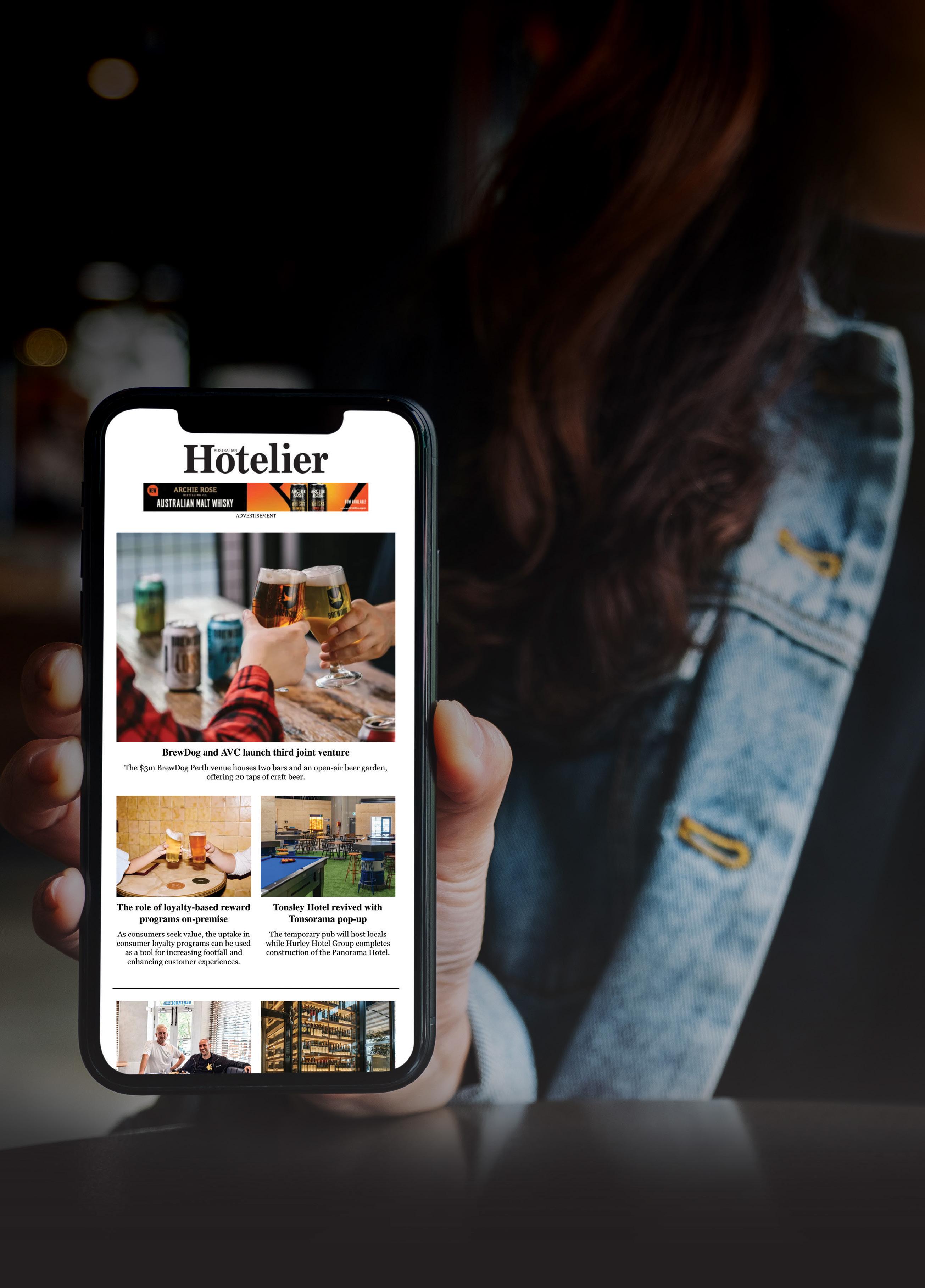

Pub accommodation has a unique appeal for travellers, providing comfort, convenience, and a convivial atmosphere across the venue. By Caoimhe Hanrahan-Lawrence.
THE AUSTRALIAN appetite for travel is apparent, and many of us are choosing to holiday within the country. A survey conducted by the Tourism and Transport Forum (TTF) found that 75 per cent of Australians planned to go to on holiday over the summer of 20232024, with the proportion of interstate travel increasing from 18 to 26 per cent compared to the previous summer and more than a third of travellers planning to visit locations in their own state. This represents an opportunity for publicans to augment their revenue by introducing or improving accommodation options within their venues.
However, achieving success with an accommodation offering is not as simple as providing the service. Understanding who is visiting the venue and why, as well as having a particular appeal to the client base, are both key considerations for an effective offering.
The style of accommodation a pub offers is greatly influenced by the kinds of guests that frequent the area, as Pub Rooms CEO Ralph Kelly explained.
“What pubs have to do is look into their local region and ascertain what market segments are actually staying over in their town or city. When this is completed, you can then look at how best to capture each market segment, plus what price are they likely to pay,” he said.
The Stradbroke Island Beach Hotel is located in a popular holiday destination just off the Queensland coast. Peter Hogg, CEO of The Good Time Group, told Australian Hotelier that the hotel is involved in encouraging tourism to Stradbroke Island.
“We’re working closely with the Stradbroke Island Chamber of Commerce and key stakeholders such as Sea Link, which operates the vehicle
ferry and a passenger taxi service across the island. Together, we are focused on connecting both Australian and international tourists to Stradbroke Island. Our goal is to encourage more people over here more often. Once visitors realise how easy it is to get here, they’re amazed by the convenience and the island’s beauty,” he said.
For venues that see most of their accommodation booked directly through their website, these connections are particularly important, as they provide other avenues for guests to learn about the venue.
“We have linked our websites together so that if you’re coming across for the day or the week, our website links to the Sea Link site to purchase your tickets straight away. We’re trying to make the trip seamless. We’re not there yet, and we’re still refining the process, but everyone is on the same page,” Hogg added.

The Brook Hotel in Brisbane’s north-west sees a wide variety of guests visiting for leisure and for business. Brett Salter, ALH Hotels’ Head of Accommodation, noted that the location and amenities are drawcards to both guest groups.
“Since opening we have experienced a great mix of mid-week corporate and leisure guests at The Brook. Our strongest night of the week are Saturdays on the back of Brisbane’s calendar of events along with onsite functions or celebrations in the hotel. We do host a great mix of transient leisure travellers across the weekend with our easy access and free parking conveniently on the airport side of Brisbane,” he said.
For venues close to business hubs or with onsite conference facilities, business travellers can make up a significant segment of hotel guests.
“Midweek corporate travel and on-site meetings are driving Wednesdays which is now our second highest demand night of the week. Whether you’re here for business or pleasure, our guests love the
Kelly shared three simple but important things that a quality pub accommodation offers to its guests.
1. Be responsive to guests’ needs, but don’t be overbearing.
“There is nothing worse than being interrupted during dinner by someone asking ‘Is the meal alright?’ Be attentive, but pick the right time.”
2. Ensure cleanliness throughout the venue, not just the accommodation rooms.
“Cleanliness is non-negotiable, right across every aspect of the hotel. Otherwise, you will lose customers to bad reviews.”
3. Provide a secure and safe room with comfortable amenities.
“Guests are more than willing to pay a higher price for a quality room. A clean and airy, well-maintained room is essential, along with a comfortable bed, internet, reverse cycle airconditioning, and all the furniture items you would expect. If you wouldn’t stay in your own rooms, why would anyone else?”
convenience of wandering downstairs to enjoy your local pub grub,” Salter said.
Pub accommodation often operates within the budget space, which is a particularly attractive category right now amid rising cost-of-living pressures, with a TTF survey indicating that costof-living pressures are affecting the travel plans of over half of Australians.
While the Beach Hotel is not necessarily budget accommodation, the rate is competitive compared to other accommodation options on Stradbroke Island.
“Our accommodation is considered mid-range, and our rates don’t seasonally fluctuate as much as other options on the island. Our rates are more consistent. However, it is common for Airbnbs on the island to skyrocket in price over the six-week Christmas period due to the limited supply of accommodation, sometimes quadrupling in price.

 The Stradbroke Island Beach Hotel
The Brook Hotel offers dining and beverage discounts for its accommodation guests.
The Stradbroke Island Beach Hotel
The Brook Hotel offers dining and beverage discounts for its accommodation guests.
“Many accommodation options are pricing themselves out of the market, making it increasingly difficult to stay on the island due to these significant price fluctuations,” Hogg said.
Pub accommodation also provides the convenience of a “one stop shop”, with food, beverages and accommodation all operating under the same roof. This is also another way to offer value to guests, as the Brook Hotel does by offering meal discounts and a complementary drinks voucher.
“The Brook Hotel provides guests with a dynamic and sociable atmosphere, convenient access to bistro meals, live entertainment, and refreshing drinks. This is ideal for travellers seeking value and convenience,” Salter said.
In remote and regional areas, this is particularly appealing, as many visitors would be visiting the local pub during their stay anyway. Hogg explained that this makes the Beach Hotel a convenient option for its guests.
“We are on prime real estate overlooking Cylinder Beach and Home Beach. Our accommodation is rated three stars, and we are the sole licensed hotel on the island. All the facilities are conveniently located at your doorstep, unlike other accommodation options where you would need to travel to us,” he said.
Pub accommodation can provide a more personal experience for guests, especially if the staff is primarily comprised of locals.
“I think that for remote and regional venues, hiring as many members of the local community as possible is key. We are proudly the biggest employer of locals on the island, and we hope to keep it that way. Locals know the island intimately and they are a hub of information. It means our guests can easily tap into the local knowledge for the best recommendations of places to see and do. All they need to do is ask us,” Hogg said.
The often smaller scale of pub accommodation can be another benefit, as guests receive a more personal experience, suggests Kelly.
“Done right, guests prefer pub accommodation, as they know that they will be treated as a human and not a number. The smaller boutique feeling being in a pub, mixing with locals and travellers alike, is often what guests are looking for.”
*STR Market Data




 Accommodation prices at the Beach Hotel don’t fluctuate as much as other options on the island.
The Beach Hotel receives most of its bookings through its website.
The Brook Hotel responds to a rising demand for accommodation in Brisbane.
Accommodation prices at the Beach Hotel don’t fluctuate as much as other options on the island.
The Beach Hotel receives most of its bookings through its website.
The Brook Hotel responds to a rising demand for accommodation in Brisbane.

Achieve unparalleled management over your guest rooms - from in-house activities, revenue tracking by room type, to upholding housekeeping standards, and even analysing guest reviews. All of this is accessible at the mere touch of a button.
First impressions count. Present your rooms and offers compellingly online to convert interested lookers into confirmed bookers. Our booking software not only enhances your online presence but also simplifies the reservation process, enabling guests to book anytime, freeing your staff from handling calls and emails.
Our advanced software meticulously organises your room configurations, rates, and guest bookings. It integrates revenue tracking, point of sale, market segmentation, and guests’ points of origin, providing a holistic view of your business operations.
Stay informed with monthly revenue reports across all room types and booking origins. Break down data year-over-year or month-over-month to understand

revenue and occupancy trends. Utilise historical data to compare performance and optimise rates for maximum hotel efficiency.
Elevate your pub or motel above the rest. Be the leading choice in your local area by differentiating yourself from competitors. Our solutions position you as the first choice for potential guests.
Broaden your market by increasing your distribution channels. Capture a diverse audience, from corporate and government to leisure and special interest travellers, whether they’re booking for midweek stays or weekend getaways.
Benefit from the additional revenue generated by guests enjoying their stay at your property. Our tools not only improve guest satisfaction but also contribute to your bottom line.
Elevate your property’s management and booking capabilities today. Be the preferred choice, increase your visibility, and enjoy the benefits of streamlined operations and enhanced guest experiences.



Responding to demand for more space and seating, the Belvedere has completed a 15-month renovation, capitalising on the rare opportunity to watch a sunset over the water in Queensland.
THE BELVEDERE, located on the southern end of Queensland’s Redcliffe peninsula, has recently undergone an extensive renovation resulting in a complete reworking of several spaces throughout the venue. The decision to renovate was primarily driven by a demand for more space in the venue, according to Chris Allison, Queensland regional manager, leisure, for Lewis Land Group.
“We were in a position where, in our peak services on Friday, Saturday, and Sunday, we just needed more seats. We had around 800 seats, and the latest renovation took that up to 1150 seats to support our core trade,” he said.
Additionally, the popular Pavilion space needed to be refreshed, and there were some necessary structural changes that needed
to be made to the building, particularly to the original structure at the north end of the property which has great heritage significance.
“The original Belvedere was a boarding house built in the 1880s and was one of the oldest shops in Redcliffe. There were some structural issues with the roof, and it was just time to fix that as well,” Allison said.
The previous renovation was in 2015, which saw the redevelopment of the space currently known as the Pavilion, with this most recent round of renovations focusing more on the venue’s upstairs and northfacing side. Construction began in July 2022, at which time the Pavilion was the only space operating, with a capacity of 300 people. There was a total eight-week shutdown in September 2023, and the project took 15 months to complete.
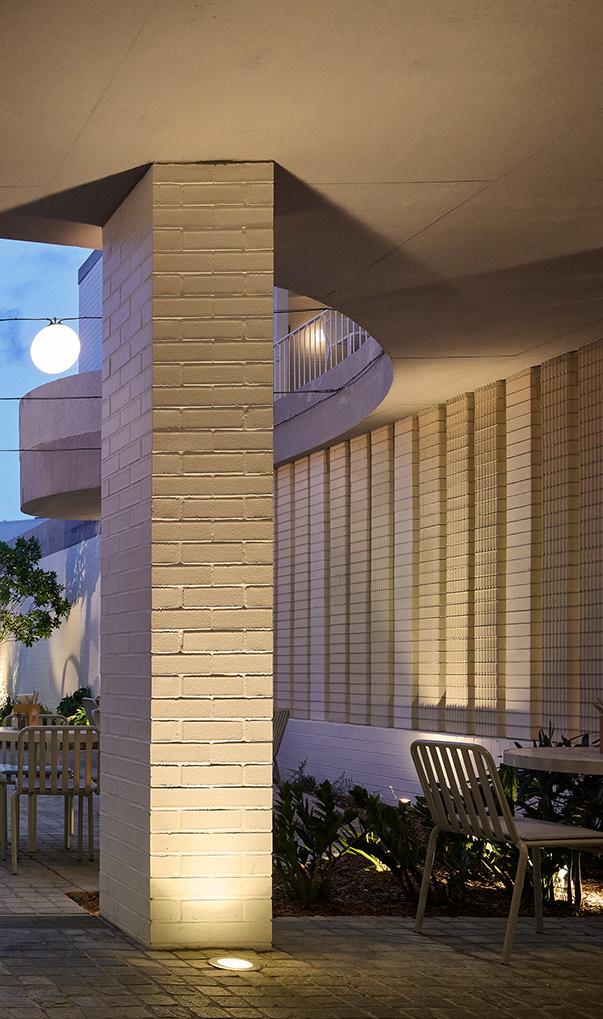


The latest renovations at the Belvedere focused on the first floor, which Allison felt had been underutilised in the past.
“We had a small function room up there and some pretty spectacular views, so we wanted to enhance that. The obvious solution to getting more seating was to create a bigger upstairs space,” he said.
The first new section that guests approach from the Pavilion is The Sunset Room, which boasts impressive views of the sunset over the Eastern coastline. The architect, Kon Panagopoulos, contrasted warm, natural woods with concrete, creating a visually interesting space.
“The room has a lot of timber joinery, booth seating, and wooden flooring. A feature of Kon’s architecture is he does utilise a lot of polished concrete, and there’s natural steps as well, which we absolutely love. That keeps the area cool and gives contrast. It has cork inlay

tables and all this lovely use of wood, subtle tones with exposed concrete above you. Then it marries up with the water, those lovely browns and arid colours that look out to beautiful blue water and sunsets. That contrast is really nice,” Allison said.
In addition, there is a pizzeria, where customers have a view of the large pizza ovens, and a gelato window. The front deck space has also transitioned into a non-smoking area, and while this space is less formal than the Sunset Room, customers are still opting to dine there.
“It has one of the best views in the hotel, looking down to the Woody Point jetty and across the water. It has a lovely use of timber, very clean. It’s an unpretentious public bar, but it’s becoming a very popular dining spot as much as anything,” Allison said.
Upstairs, the 100-seat Seaspray Room was converted to a 350-seat space, providing a large portion of the added
The Belvedere continued to operate throughout the majority of construction at the venue, and much of this was due to communication between Rohrig and the venue’s staff.
Rohrig was involved in the early development stages before securing the contract through tender, which allowed the construction team to see how the venue operated under normal conditions.
“Understanding how The Belvedere operated and where the key customer areas were that needed to be maintained meant that we focused on staging the build to suit those elements,” Tucker said.
Even though Rohrig is familiar with hospitality builds, communication was still important to address day-to-day changes or potential disruptions.
“We have a lot of experience in hospitality builds, but the communication with the client was crucial. Our foreman would meet with the general manager of the hotel, Mitch Paul, pretty much daily, just to run through what we’ve got coming up, what deliveries are expected, or any interference with the operations that might be expected,” Tucker said.
“It’s evidence of just how well they traded while we were on site that they were able to cease all trading for eight weeks to get it all refreshed and it’s a testament to how well the interaction and initial staging went that they were able to still turn over quite good numbers during that construction process.

seating at the Belvedere. It includes a centralised bar, booth seating and timber joinery. Large multi-fold doors open towards the bay and a balcony overlooks the Pavilion.The scale of the upstairs renovation required significant structural supports in order to hold the added weight, as Matthew Tucker, construction manager for Rohrig, told Australian Hotelier.
“We added a whole new bar upstairs, which required structural alterations and additions to take the weight of all that new bar area. There was a bit of work that needed to happen, because it would have been a shame to lose the original structure. It’s a pretty significant piece of architecture in the area,” he said.
The added space has helped spread revenue production across the venue, where it was previously concentrated in one area. Prior to the renovations, 70 per of revenue came from the Pavilion, but now the Pavilion and upstairs account for 40 per cent each.
Another new addition has been the courtyard space, which is now the main entrance for the venue.
“The biggest change is the cobblestone courtyard with a feature olive tree. About 70 per cent of our clientele used to enter through that back carpark, and we used to have multiple entries. Now we just have that one. The gantry from level one looks down onto it, and there’s a Juliette balcony up there as well. That’s the main harbour for the hotel,” Allison said.
This new space provides a level of flexibility for the venue, as it is still an inviting location for people to patronise while staff prepare the food service areas for new guests.
Allison described a recent time when this interaction between spaces worked particularly well.
“We had a group of 40 in a [dining] space and we had another


group of 40 waiting for tables. We were able to house the waiting group in the courtyard and look after them. Then, when we were just switching tables out of the way, the first group came out to sit in the courtyard themselves and had a gelato and a cocktail. That was the space working perfectly,” he said.
Another goal of the renovation was to enhance the gaming area, which was a high performing area, especially considering the Belvedere’s seaside location. The goal was to modernise the space and give it a more premium feel. Fifteen new gaming machines were added in, and updates were made to the furnishings and room preparation.
“We put in a large racetrack or lozenge screen above the main bank of machines to create a casino feel. The room has a lovely floating bar. Probably the nicest finish of any bar in the venue is in the gaming room,” Allison said.
“We did a fair bit of work with the banks as well, trying to create sections of two rather than odd numbers. It’s got fantastic air conditioning, and we didn’t spare any expense on the seats that we used. We really wanted to make sure it was a premium space.”



Despite increasing seating for foodrelated occasions, the Belvedere still only has one kitchen to service the whole venue. The Belvedere staff need specific strategies to deliver this large food output, with order frequency now reaching as high as once every nine seconds after the renovation.
“We have a large body of staff and we have people during each shift who are dedicated to that one task, which is to get food from that downstairs kitchen into the upstairs areas,” Allison said.
Both floor and kitchen staff utilise order screens instead of dockets, which allows for easier organisation of orders made in various areas throughout the venue.
“Upstairs orders are treated with an understanding of urgency, that this order needs to go directly out there. We don’t try to multitask within that movement, which we normally would in other areas,” Allison said.
While this is a challenge, Allison is pleased that the venue has proven so popular after the renovation.
“Dealing with how to service a large crowd every day is such a great position to be in.”
When updating the Belvedere’s first floor, the group decided against putting in a function room, choosing instead to focus the venue entirely on the core food and beverage trade. Traditional functions are being redirected to the nearby Komo Hotel – also owned by Lewis Land Group - which has function space. The Komo took in many of the Belvedere’s regular guests during the eight-week shut down, meaning that more Belvedere guests are also aware of the Komo’s offerings.
“We were able to transfer a lot of our sponsorship offers, our club cards and our midweek drivers to the Komo during the shutdown. The net result is that a lot of those regulars are going back to the Belvedere, but they’re also aware of the Komo and what it offers,” Allison said.
While the Belvedere does not have a large function space, it does have a 20-seat private dining room, which is designed for small, exclusive events.
“We want to do some special events in there for people that are friends of the Belvedere. We’ve had the Dolphins [NRL] executives up there, we’ve had the local Moreton Bay Council executives up there, we’ve had some private lunches. We’re trying to create a little bit of exclusivity and a different experience,” Allison said.


The Belvedere’s beverage performance has seen a boost following the renovation, whereas food had previously dominated the operations.
“We’re able to have a happy medium between the two. We were able to secure some later night trade, which hasn’t been traditional to the Belvedere. Particularly upstairs, there’s a lot of interest in coming up, having a cocktail and maybe having a pick at some food. Beverage hasn’t been as incidental to food as it was in the past, and we’ve been able to create some new revenue streams that way,” Allison said.
Allison has also noticed a trend towards premium beverages in the upstairs areas.
“We’re certainly noticing the skew towards cocktails and a slightly higher end options upstairs. We get a lot of couples. It’s certainly a desirable location at the moment,” he said.
The renovations have received a positive response from both guests and staff.
“We’ve been able to employ 250 people across the 12-week period leading up to Christmas and it’s been great to have that impact on local families,” Allison said.
“To see so many of our old customers coming back and feeling like they were having an enhanced experience of the venue has been really satisfying for us, and the staff are able to be extremely proud of the location they’re at.”
Australian Hotelier’s magazine, website and newsletter are from the trusted stable of Food and Beverage Media.
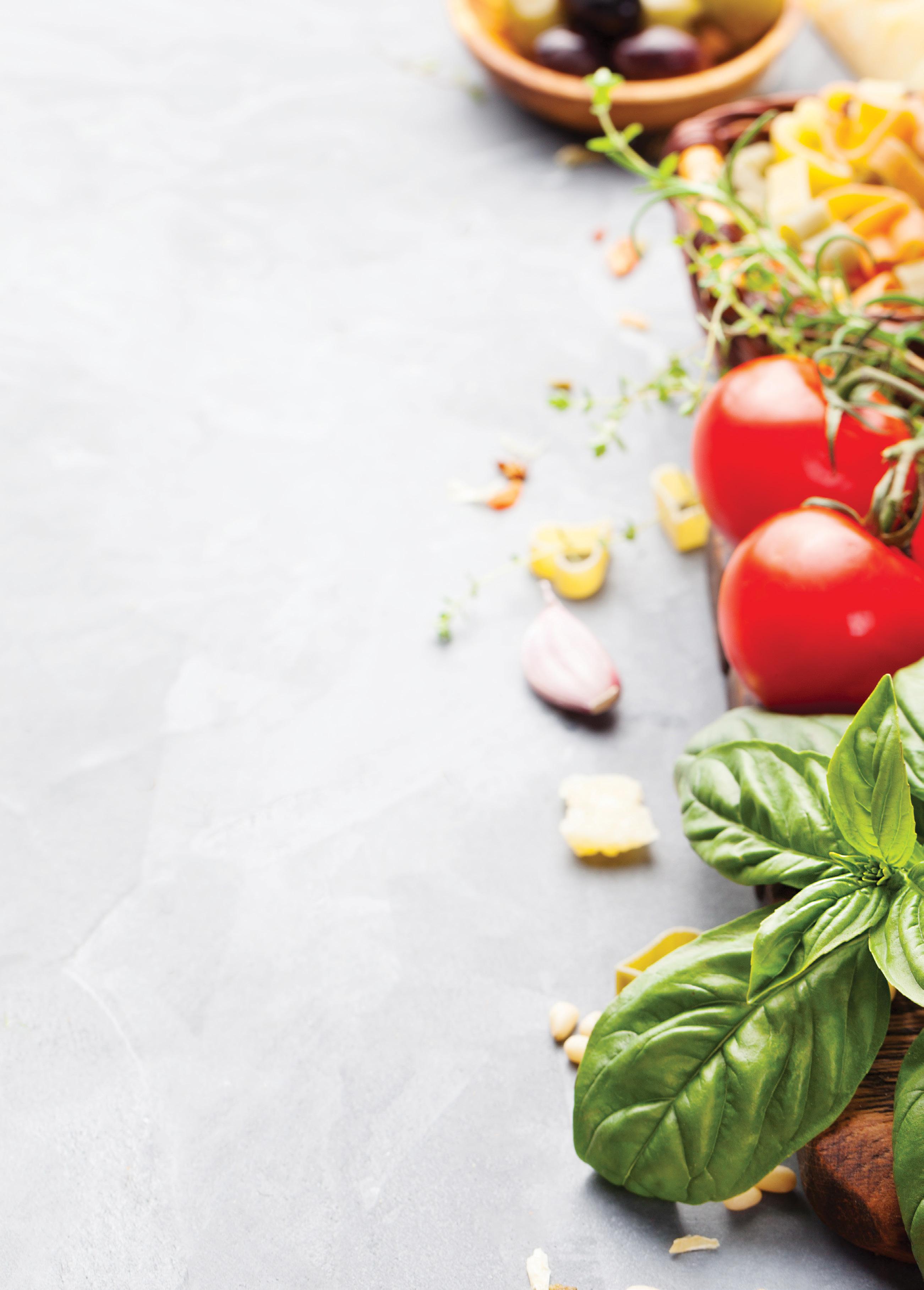

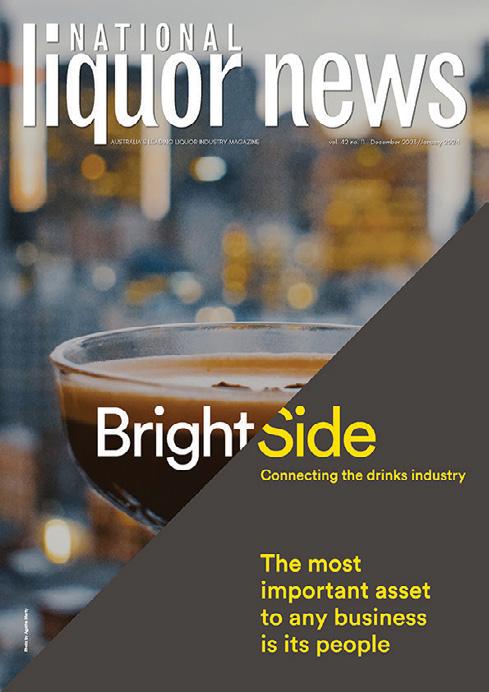
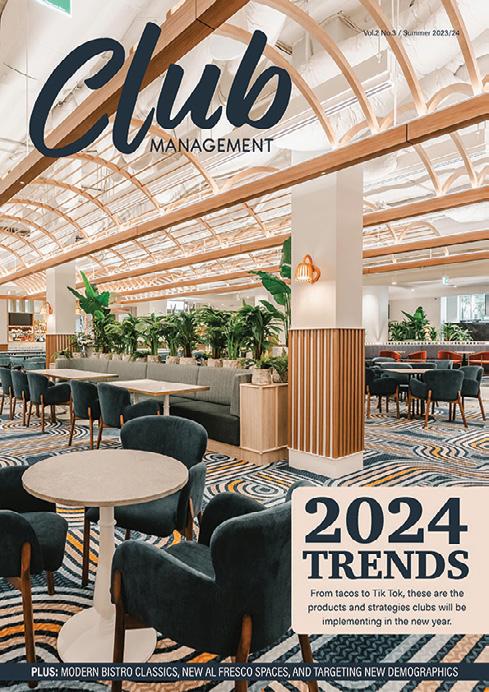
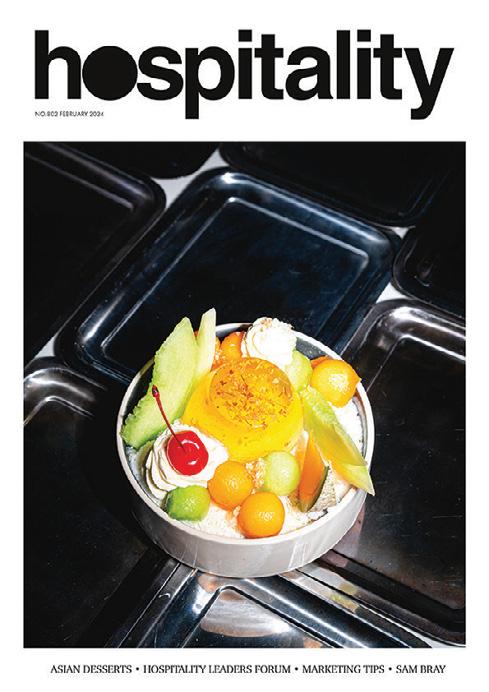
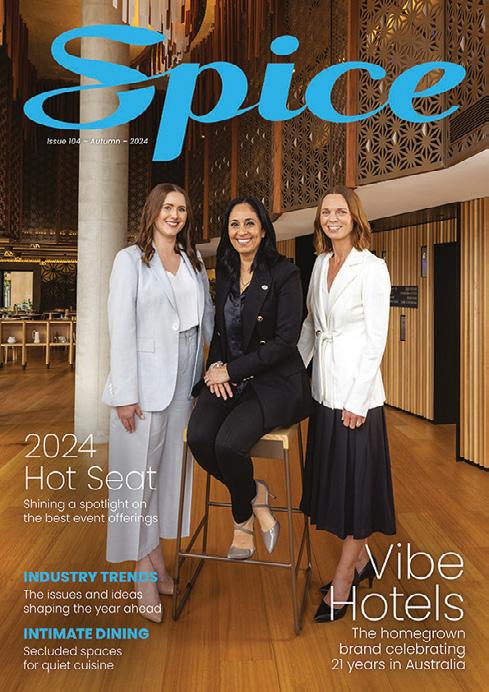
Food & Beverage Media is a division of The Intermedia Group. For the best coverage of the food and drink sectors in Australia, subscribe to our titles at www.intermedia.com.au
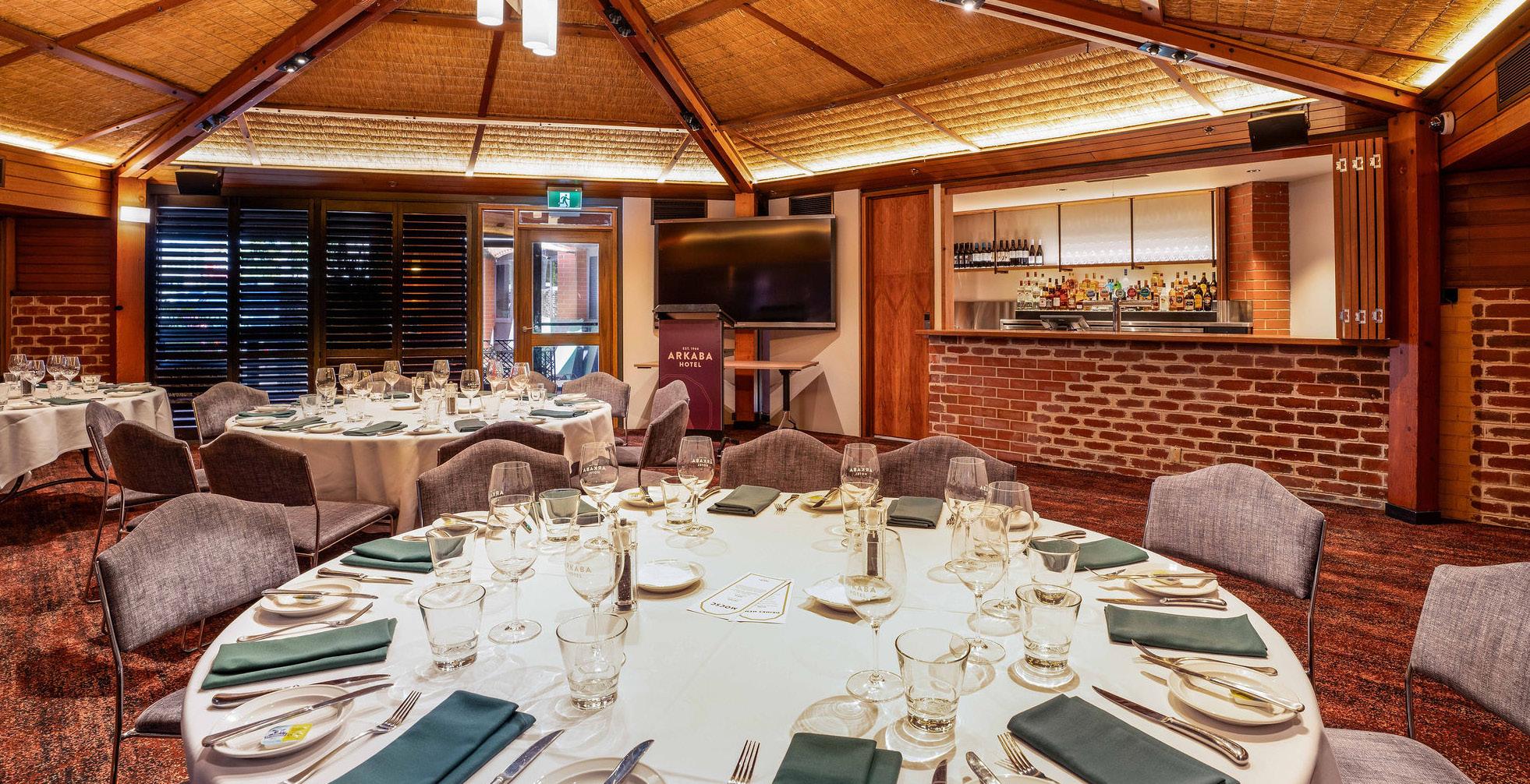
The Arkaba Hotel has introduced monthly Quiet Dinner events designed to create a comfortable space for the autistic community to attend the venue.
THE ARKABA Hotel has become the first pub to collaborate with Autism SA to introduce monthly Quiet Dinners, holding the first dinner on 5 February.
The South Australian Assistant Minister for Autism, Emily Burke, has been working closely with the hospitality industry to increase autistic access to South Australian venues. The office recently funded a hospitality liaison position within Autism SA, held by Kaitlin Withers.
Going out can be difficult for the autistic community, as Withers explained.
“Sensory sensitivities are quite common for autistic people. The lights are too bright, there’s too much noise, there are too many people. Often, there are also sensitivities around food. Some people only eat very plain food, like plain chicken nuggets with no sauce, or certain foods can’t touch each other, and that’s sometimes hard to communicate to a pub that’s used to making food in a certain way,” she said.
Hurley Hotel Group project manager Anna Hurley said that due to the size of
The Arkaba, it was easy to find a suitable space for the Quiet Dinners. The monthly events are held in one of the function rooms, where the lights were turned down and music and televisions were turned off.
“There are few other important elements, such as allowing people to book the same table regularly, because routine is often important for autistic guests. Instead of doing service to the table, guests order up at the bar, because it’s a bit less confronting for some people. There’s those little tweaks to our service style,” Hurley said.
Autism SA held training sessions with Arkaba Hotel staff to prepare them for the dinners, including explaining what autism is, how to respond to a guest during a meltdown, and about repetitive selfregulatory behaviours, called stimming. The Arkaba Hotel is also working to provide more information about the venue on its website, which will allow guests to plan their visit ahead of time and anticipate which areas may be potentially stressful.
“From a business perspective, the
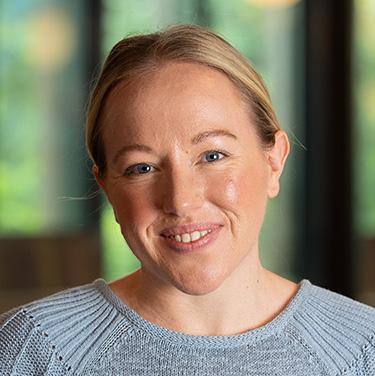
dinner was successful and easy to run, and from a customer perspective, we’ve received really positive feedback. There was a lot of commentary online before the event. A lot of people were sharing it, saying that it’s a good thing to do and something they want to attend. The night was well attended, and not just by people with autism. There were some people who had brain injuries or hearing difficulties that make it difficult to be out in noisy places. There is a really broad range of people that are looking out for this service,” Hurley said.
Hurley is hoping to expand these kinds of events to cater to different parts of the autistic community.
“Autism doesn’t just look like a schoolaged child and their family looking for somewhere to go out for dinner. It’s also young adults going on a first date, or out for a social occasion,” she said.
“We’re going to take as much feedback as we can about what kinds of events we should put on, and we’re hoping to continue and grow them.”
Anna Hurley Group project manager Hurley Hotel Group